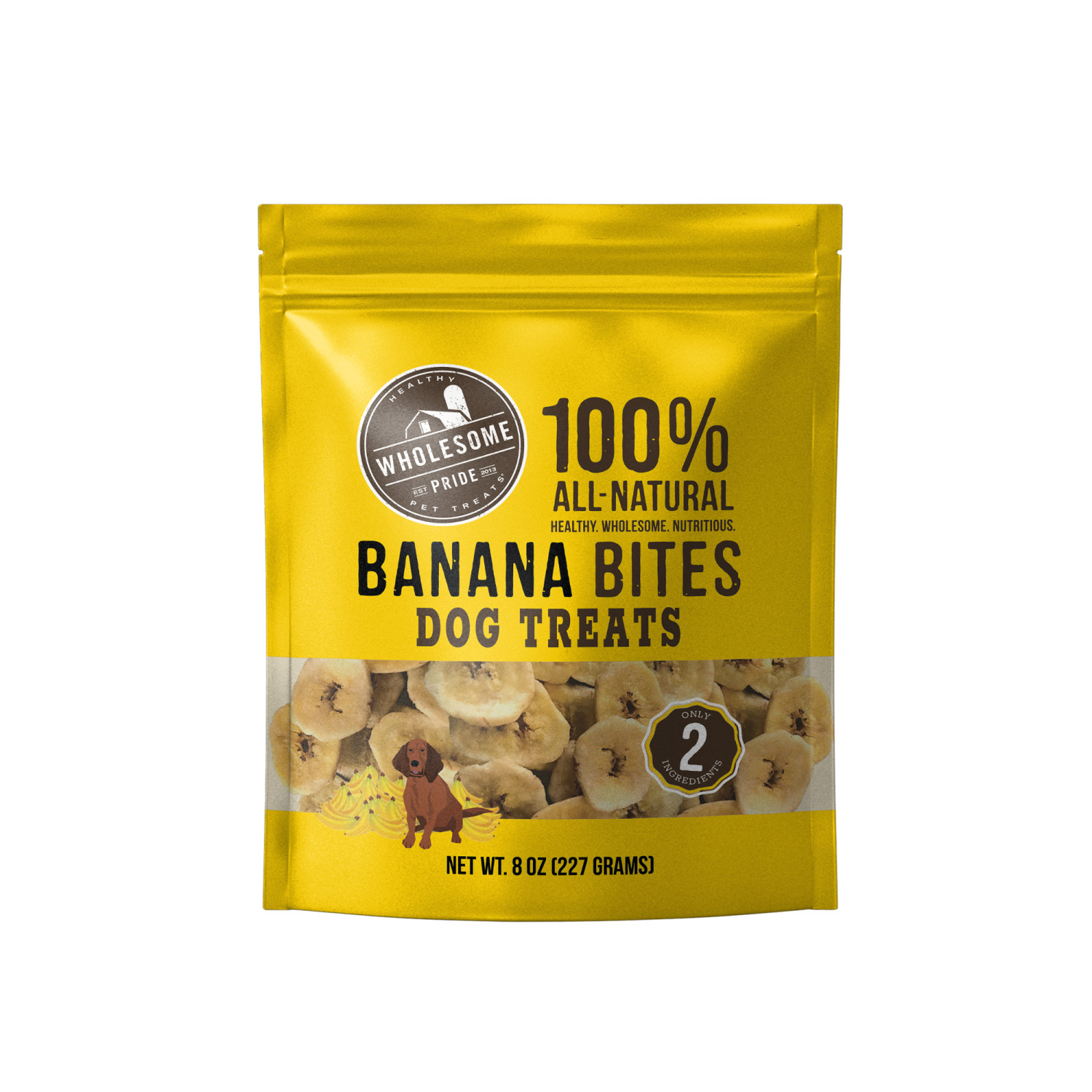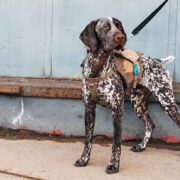Carbohydrates have gotten a bad rap lately. Maybe people are going gluten-free because they have food allergies or they believe that it’ll help them lose weight. Should it apply to a dog’s diet, though?
This trend has also made its way into the world of pet food, as many dry dog food and wet food brands have grain-free offerings. Pet owners may be wondering: Is grain-free dog food better for your pup? And should you put him on a grain-free diet?
When trying to decide whether or not to go grain-free, you should first learn about this type of food and whether or not it’ll be beneficial for your dog.
All About Grain-Free Dog Food
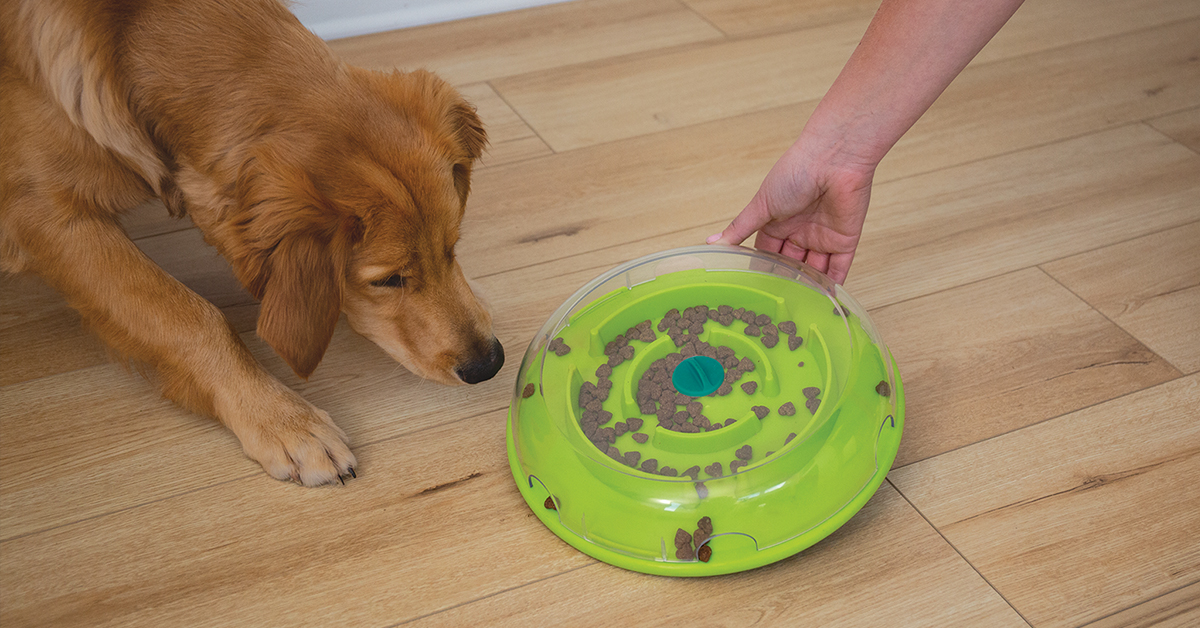
Grain-free dog food will not include ingredients like wheat, rice, corn, barley, oats, soy, or rye. However, it might still contain carbs such as lentils, potatoes, sweet potatoes, quinoa, or peas. It could contain more meat as a substitute than regular dog food, which means it has high protein. Or, there could be an alternative source of carbohydrates. Just because a pet food is grain-free, it doesn’t mean it’s high quality.
The Benefits of Grain-Free Diets
There are some different pros and cons dog owners should consider when looking into grain-free dog food.
If your dog has a grain allergy, of course, you can put him on a grain-free diet, which should address his health issues. Additionally, grain-free pet foods could be beneficial if your dog has digestive issues, since carbohydrates can be difficult for some dogs to digest.
Dog foods with grains may use wheat gluten or corn meal, which are cheap fillers that have little nutritional value and reduce the quality of the kibble or wet food. However, many grain-free dog foods will not use fillers, and instead may use better quality ingredients.
The Drawbacks
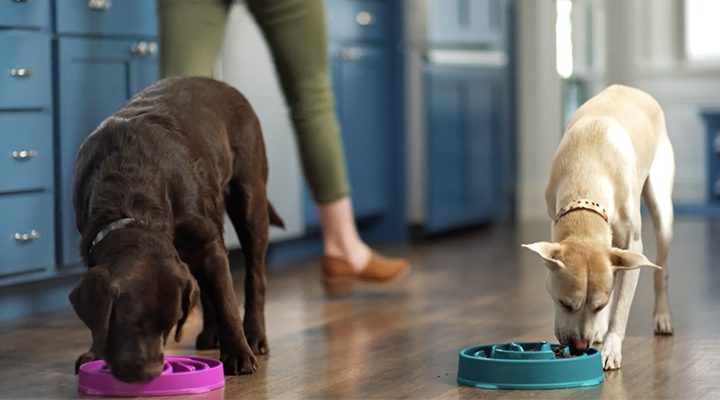
On the downside, grain-free dog food might not be the best dog food for your pup if he can easily digest grains. Your dog may need healthy grains, such as whole grains, in order to meet all his nutritional needs. For instance, grains contain magnesium, potassium, omega-3 fatty acids, protein, and fiber, which have many health benefits for your pup. Also, it can be hard to find grain-free pet foods at your local pet store, and if you do, they might be more expensive.
There have also been concerns about grain-free dog food among veterinarians and the FDA. Recently, veterinary cardiologists have noticed that more dogs are experiencing dilated cardiomyopathy. This is a serious heart condition that reduces the heart’s ability to pump blood.
Since veterinary cardiologists were diagnosing this heart condition in breeds that did not have a known genetic predisposition, the FDA stepped in and started an investigation. They found that among 515 reports of DCM between January 2014 and April 2019, 90% of the dogs ate grain-free dog food and 93% were on diets that included lentils and/or peas.
Once some dogs were taken off a gluten-free diet and began taking taurine, a special amino acid supplementation, their heart condition improved. If dog owners do put their dogs on a grain-free diet, they should ask their veterinarian to monitor their dog for heart disease just in case there is a potential link between the food and health conditions like DCM.
What Your Dog’s Pet Food Should Include
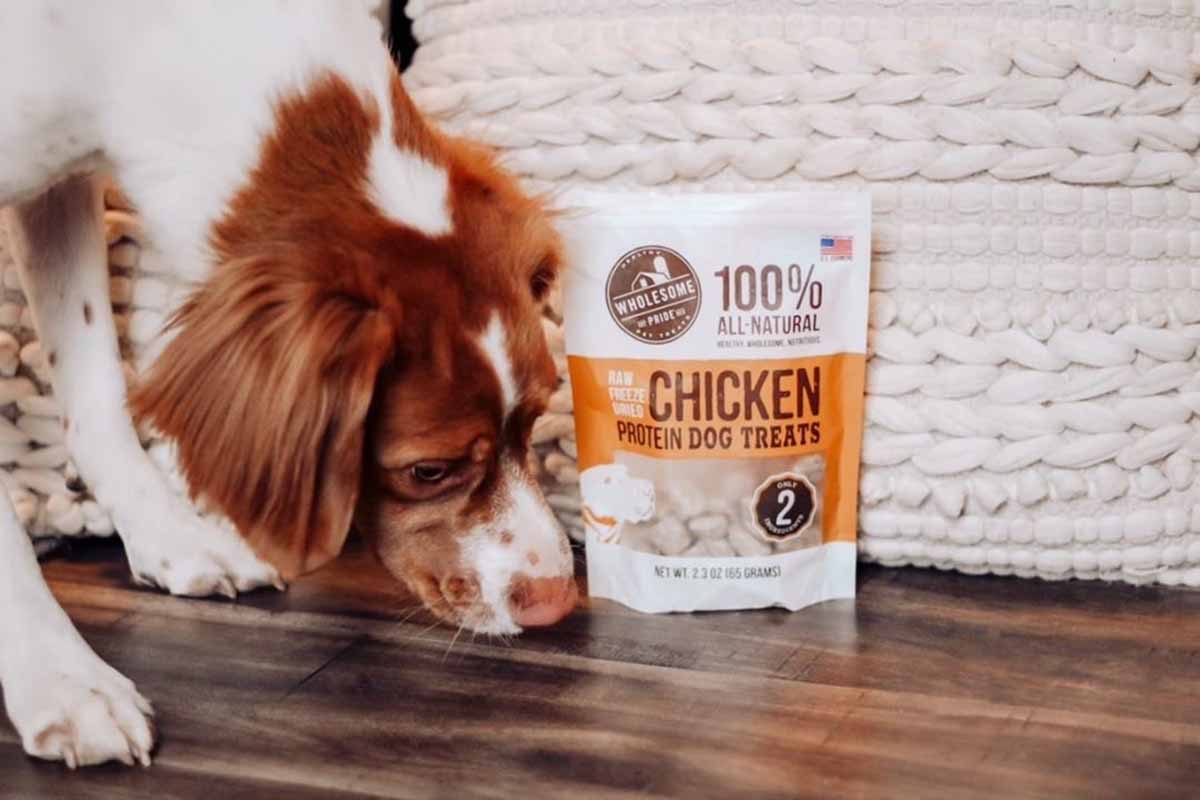
As long as your dog doesn’t have any allergens, you should choose a dog food brand that meets your dog’s nutritional needs. Dogs are omnivores, not carnivores, which means they need a diet that consists of a combination of meat and plants.
The dog food brand should meet the nutritional content standards set by the Association of American Feed Control Officials (AAFCO). It should contain a balance of protein, fat, carbohydrates, vitamins, minerals, and water.
When looking at the ingredients for kibble or wet food, make sure you recognize the ingredients in it. For instance, they should include whole-food ingredients. Stay away from fillers as much as possible.
The food should also be low calorie, which means that it has less than 350 calories per cup. If your dog is eating a low-quality, high-calorie dog food, it could lead to obesity, which causes a range of health problems.
You can ask your veterinarian or veterinary nutritionist how many calories your dog needs per day based on his body condition score as well as his lifestyle. Typically, if your dog lives in your house, has a light exercise schedule, and is spayed or neutered, you can use this easy formula to calculate his caloric intake:
30 x weight in kg (or pounds divided by 2.2) + 70 = Daily number of calories he should intake.
In terms of dry dog food or wet food, there are no differences when it comes to digestibility and nutrition. But if your dog doesn’t drink enough water, wet food could be beneficial to his overall health. It could also be helpful if he has trouble chewing because of dental issues.
Keep in mind that you should always go for a highest quality dog food you can afford, even if it’s a little pricey. Dog food without quality ingredients could lead to health conditions and upset your dog’s stomach. A high-quality dog food could help you save big on your veterinarian bills in the long run and ensure your dog has excellent overall health.
Should You Switch to a Grain-Free Diet?
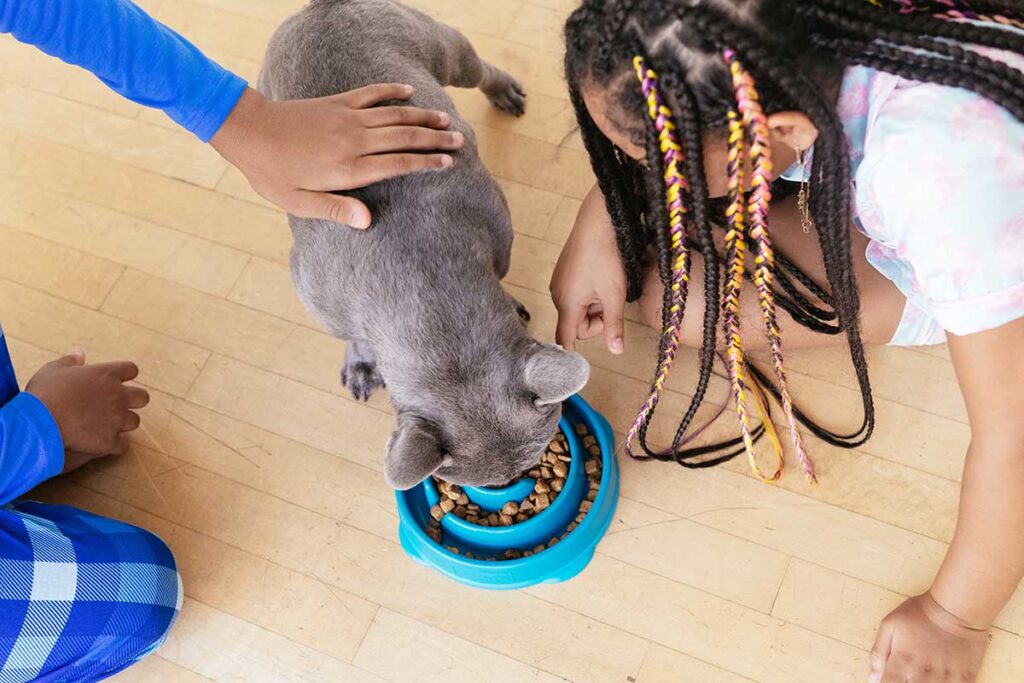
Pet parents may want to know if they should put their dogs on a grain-free diet. You should only switch your dog’s food to a grain-free diet if you have permission from your veterinarian. Above all else, your dog needs to eat pet food that does not trigger any allergies and also provides all their nutritional needs.
Aside from ensuring that your dog’s food has the right ingredients, it should also be suitable for your pet’s age (aka life stage). For instance, puppies need puppy food, adults need adult food, and seniors need senior food.
As long as you do your research and talk to your vet, you’ll know whether or not your dog needs to go on a grain-free diet.
Grain-Free Dog Treats
Sweet Potato Bites Dog Treats
$16.99
At Wholesome Pride, our mission is to create a better, healthier, treat—using 100% real ingredients. That’s why we work with farmers around the world to sustainably source and produce delicious and nutrient-rich treats made with farm fresh ingredients. We don’t use any artificial or unnatural preservatives, artificial colors, or fillers in our dog treats, which make them a perfect snack for pups with…
Wholesome Pride Banana Bites
$12.49 $8.99
At Wholesome Pride, our mission is to create a better, healthier, treat—using 100% real ingredients. That’s why we work with farmers in the US and around the world to sustainably source and produce delicious and nutrient-rich treats made with farm fresh ingredients. We don’t use any artificial or unnatural preservatives, artificial colors, or fillers in our dog treats, which make them a perfect snack for…

